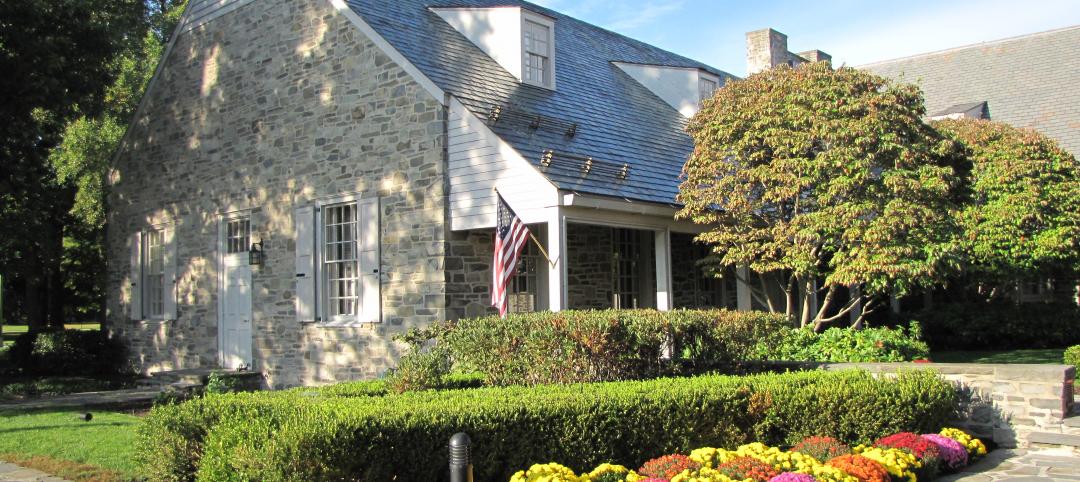About a year ago, Education Credit Management Corp. Group (ECMC Group), a nonprofit organization, finalized its acquisition of more than 50 Everest and WyoTech campuses from the now-defunct Corinthian Colleges chain. To execute that transaction, ECMC Group launched a subsidiary, Zenith Education Group, which provides career school training. This acquisition created the largest nonprofit career college system in America.
Upon closing this deal, Zenith began implementing key improvements in program quality, affordability, completion and job placement rates, and accountability and transparency.
Among Zenith’s initiatives was its Campaign for Innovation, sponsored jointly by ECMC Foundation and ECMC Innovation Lab, to encourage creative, actionable, and measurable ideas from campus employees about promoting student success. Greg Schuman, an electrician instructor at Zenith’s Tampa, Fla., campus, submitted an idea for Zenith to partner with the National Center of Construction Education and Research (NCCER) to be able to offer students NCCER certification upon their completion of electrician, HVAC, carpentry, or plumbing training.
Zenith’s 20-hour-per-week, nine-month program will give students much of what they need to know in order to be workforce day-one ready. And with the certification from the industry recognized NCCER, Schuman believes students who complete this program should be able to skip entirely the classroom part of any apprenticeship.
The Foundation liked Schuman's idea, and gave him a $36,095 grant to get his proposal off the ground. Next month, 15 of Zenith’s instructors will convene in Tampa to start learning to become NCCER-certified trainers.
Tampa is one of the nine Zenith campuses with building-trade programs that will offer this certification. The others are in Orange Park, Fla.; South Plainfield, N.J.; Chesapeake, Va.; Southfield, Mich.; and the Texas campuses at San Antonio, Arlington, Austin, and Houston.
In an interview with BD+C, Schuman explained that traditional apprentice trade programs typically involve both in-classroom and in-field training that can take several years to complete. “What we’re doing is frontloading the technical instruction part so the students will already have the classroom training” when they get hired.
Zenith’s 20-hour-per-week, nine-month program will give students much of what they need to know in order to be workforce day-one ready. And with the certification from the industry recognized NCCER, Schuman believes students who complete this program should be able to skip entirely the classroom part of any apprenticeship.
A knowledgeable, trained student is a valuable asset to construction firms at a time when their industry is flourishing and qualified workers are in shorter supply.
The Associated General Contractors of America (AGC) reported last week that the construction industry added 125,400 nonresidential jobs in 2015, a 3.2% increase over 2014.
“With the construction industry expanding at rates not seen since the downturn, public officials need to make sure we are encouraging and preparing students to consider high-paying careers in construction,” said Stephen E. Sandherr, the association’s CEO. “As our Outlook makes clear, the industry is likely to continue expanding this year, as long as there are enough workers available for firms to hire.”
A survey conducted by AGC and Sage Construction and Real Estate found that 71% of construction firms polled plan to expand their payrolls in 2016.
Schuman believes the certification program will give Zenith graduates a leg up at companies that hire them. Between 500 and 1,000 students will be involved in the program’s first year, and Schuman anticipates that several other Zenith campuses might begin offering building trade training if this program is successful.
Success will be measured primarily by placement rate, which now hovers around 60%. Zenith’s goal is 70%.
Related Stories
| Feb 6, 2012
Slight increase in nonres construction spending expected in 2012, growth projected for 2013
Commercial sector expected to lead real estate recovery.
| Feb 6, 2012
FMI releases 2012 Construction Productivity Report
Downsizing has resulted in retaining the most experienced and best-trained personnel who are the most capable of working more efficiently and harder.
| Feb 6, 2012
Kirchhoff-Consigli begins Phase 2 renovations at FDR Presidential Library and Museum
EYP Architecture & Engineering is architect for the $35 million National Archives Administration project.
| Feb 6, 2012
Batson-Cook announces the appointment of Hall as president
Hall will manage and direct all aspects of the firm’s day-to-day operations. He will be based in Batson-Cook’s Atlanta office.
| Feb 6, 2012
Siemens gifts Worcester Polytechnic Institute $100,000 for fire protection lab renovation
Siemens support is earmarked for the school’s Fire Protection Engineering Lab, a facility that has been forwarding engineering and other advanced degrees, graduating fire protection engineers since 1979.
| Feb 2, 2012
Call for Entries: 2012 Building Team Awards. Deadline March 2, 2012
Winning projects will be featured in the May issue of BD+C.
| Feb 2, 2012
VLK Architects selected for new Cypress, Texas elementary school
The Bridgeland Elementary School will be a new prototype school for the District. Designed to meet the requirements of The Collaborative for High Performance Schools.
| Feb 2, 2012
Mortenson Construction to build 2.4 MW solar project in North Carolina
Located on a 12 acre site in the Sandhills region, the 2.4 megawatt (MW) system is expected to generate approximately 3.5 million kilowatt hours (kWhs) of clean electricity on an annual basis.
| Feb 2, 2012
Shawmut Design and Construction launches sports venues division
Expansion caps year of growth for Shawmut.















